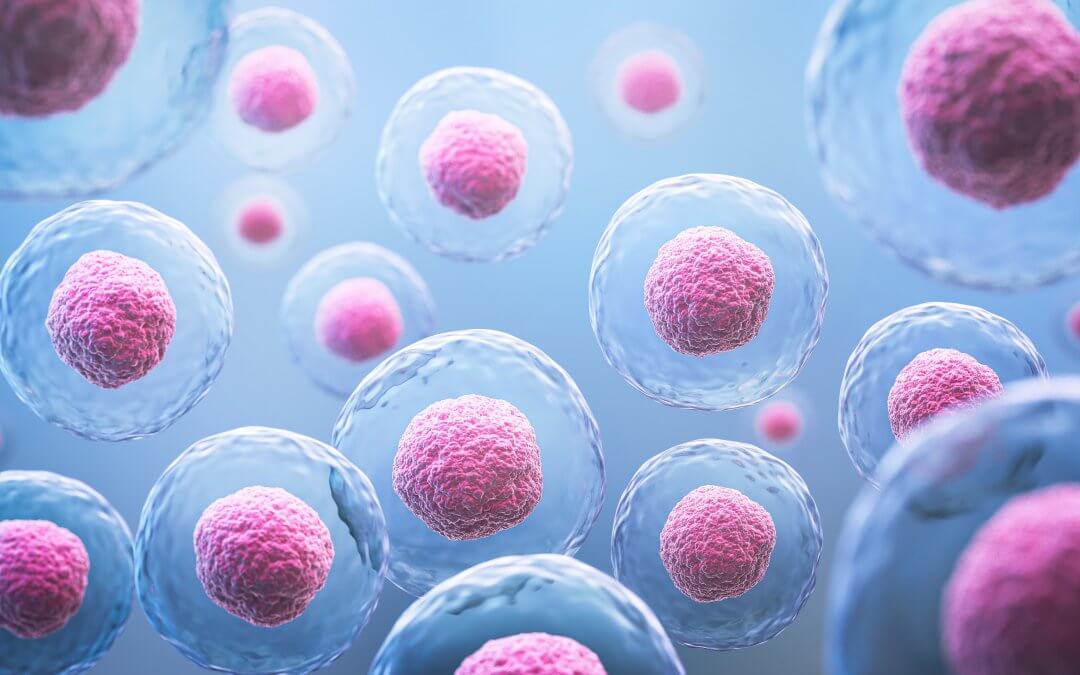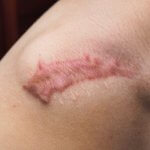In this blog we’ll explore what exosomes are, where they’re found, and how they could be used in developing new, life changing therapies for a range of conditions.
What are exosomes?
Exosomes are nano-sized particles that contain key biomolecules like proteins and lipids and travel between cells like messengers, regulating numerous biological processes including inflammatory responses.
Initially thought to be responsible for conveying waste away from cells, in recent years numerous trials and studies have explored their intercellular communicatory function and the potential this offers in a range of therapeutic applications.
Where are exosomes found?
Exosomes are produced by virtually every cell in the body, including stem cells.
Excitingly they can be derived from the mesenchymal stem cells that exist within both umbilical cord blood and umbilical cord tissue.
Due to the low immunogenicity (the likelihood of being attacked by the immune system when transplanted) of mesenchymal stem cells derived from the umbilical cord, along with their non-invasive harvest procedure and ease of expansion in vitro, umbilical cord MSC exosomes (UC-MSC-Exo) are well suited for research and potentially therapeutic purposes. [1]
What can umbilical cord exosomes do?
Below are a few examples of recent trials utilising UC-MSC-Exo in the treatment of various conditions.
Heal wounds and repair nerves
A 2022 study investigating the use of UC-MSC-Exo in treating cutaneous nerve damage and wound healing showed that exosomes have the ability to promote skin and nerve regeneration.
Studied in vitro, researchers found that UC-MSC-Exo promoted the migration and proliferation of skin fibroblasts – cells that play a key role in forming connective tissue.
Additionally, UC-MSC-Exo were also found to promote the secretion of nerve growth factors by fibroblasts, suggesting that exosomes may enhance wound healing by promoting nerve repair.
Tested in vivo in a mouse model, the study showed that the wounds of the treatment group who received UC-MSC-Exo healed faster than the wounds of the group who received a control medium.
The study concluded that UC-MSC-Exo produced therapeutic effects by promoting skin and nerve regeneration. [2]
Slow the progress of osteoarthritis
Another study from 2022 demonstrated that exosomes derived from the umbilical cord have the potential to be used as a treatment method for osteoarthritis (OA).
Using a rat model, researchers undertook a surgical procedure designed to recreate the effects of knee osteoarthritis. They then administered injections of either UC-MSC-Exo or saline solution. After 8 weeks, knee samples were taken to assess the progression of the disease.
Researchers discovered that in the knees of rats who had received injections of exosomes the progression of OA had been halted and severe damage to knee cartilage prevented.
One of the key reasons behind this, the researchers found, was that the exosomes promoted the migration and proliferation of chondrocytes – cells that make up cartilage. They also found that the exosomes helped to inhibit the secretion of pro-inflammatory factors, as well as regulate immune responses; contributing factors in cartilage regeneration. [3]
Alleviate liver damage and disease
A study from 2020 showed that exosomes derived from umbilical cord mesenchymal stem cells were able to secrete the molecule miR-455-3p which helped to suppress inflammatory immune responses and inhibit signalling pathways in order to improve liver damage. [4]
Another study showed that exosomes derived from umbilical cord mesenchymal stem cells have antioxidant effects.
A contributing factor to the progression of liver damage, oxidative stress occurs when there is an imbalance in free radicals (unstable oxygen molecules) and antioxidants in the liver. Oxidative stress can lead to what’s known as apoptosis – programmed cell death. [5]
By using a mouse model, researchers were able to ascertain that injections of UC-MSC-Exo inhibited apoptosis in liver injury, reversing the fallout from oxidative stress. [6]
Promote heart repair
There have been several studies indicating that exosomes derived from umbilical cord mesenchymal stem cells have the ability to reduce myocardial injury – damage to heart tissue.
A study from 2018 showed that UC-MSC-Exo may have the ability to promote the expression of Smad7, a protein which aids in myocardial protection by blocking certain signalling pathways.
Researchers believed this could be the mechanism underlying exosomes’ ability to inhibit apoptosis, promote angiogenesis (the formation of new blood vessels) and improve cardiac function following acute myocardial infarction. [7] [8]
Rejuvenate older stem cells
An especially intriguing study from 2020 also showed that exosomes derived from umbilical cord mesenchymal stem cells could help in myocardial repair by rejuvenating the activity and function of mesenchymal stem cells in older patients.
Because heart conditions mainly affect older patients, the risk of immunogenicity associated with allogeneic stem cell transplants in helping to treat heart damage is a potential risk. This leaves autologous stem cell transplants – using stem cells from the patient themselves – as an available treatment option. However, due to age and cardiovascular risk factors, these autologous stem cells can be limited in their usefulness.
What this study found, however, is that UC-MSC-Exo have the ability to ameliorate the senescence of older mesenchymal stem cells and renew their biological activity, such as the potential to differentiate into cartilage, bone, and fat cells.
In effect this means that umbilical cord exosomes could help in restoring the regenerative capacity of mesenchymal stem cells in a range of therapies for patients who need them most. [9]
Exosomes and cord blood banking
As some of these trials demonstrate, exosomes are a hugely exciting field of regenerative medicine, and their therapeutic potential is only just beginning to be understood.
Most exciting is that these exosomes can be found in umbilical cord blood and tissue which, although usually thrown away as medical waste, can be stored so that your baby has access to their own stem cells that they can use in future therapies.
To learn more about the potential of umbilical cord stem cells and exosomes, contact our specialist team on 01444 873 950 – they’ll be more than happy to help answer any questions you may have.
In the meantime, why not fill out your details below for a free Welcome Pack containing everything you need to know about storing stem cells for your baby.
References
FIND OUT MORE, REQUEST YOUR WELCOME PACK TODAY
All you need to know to make an informed decision.
Provide your contact details to request:
– Complete Welcome Pack and Parent’s Guide
– Information via email
– Contact from our specialist advisors









